1. We’re addicted to coffee

Americans treat coffee like oxygen, and most people consume it multiple times a day without thinking twice. The obsession isn’t just about taste—it’s a ritual that fuels mornings, workdays, and even social interactions. We rarely admit how reliant we are on caffeine to strangers, though. It’s kind of like a quiet national secret, shared in passing but never fully explained.
This fixation shows up everywhere: drive-thru coffee chains, office kitchens, and convenience stores stocked with instant options. Many people can’t function properly without a cup before 9 a.m., and some actually schedule meetings around coffee runs. Tourists might notice coffee shops, but they rarely grasp the cultural intensity. Americans may joke about it, but the truth is much more serious than the humor suggests.
2. Tipping is stressful
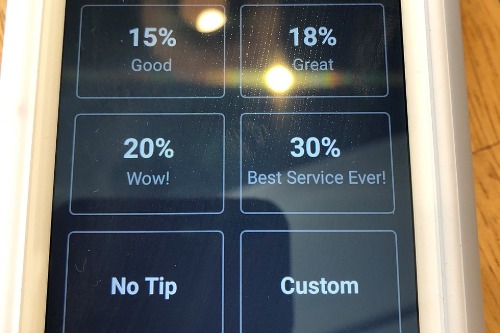
Tourists often assume tipping is just a polite gesture, but Americans live with complicated social math daily. Calculating 15–25% on every meal, ride, or service is a low-level anxiety most locals keep to themselves. There’s a constant internal debate about generosity versus fairness. It’s one of those unspoken rules that visitors rarely understand fully.
People talk about it online, but in-person conversations are usually avoided because it can feel judgmental. Servers depend on tips, so miscalculating can have real consequences. Some Americans even carry mental algorithms to adjust percentages quickly. The tension around tipping is real, subtle, and always present.
3. We’re obsessed with convenience
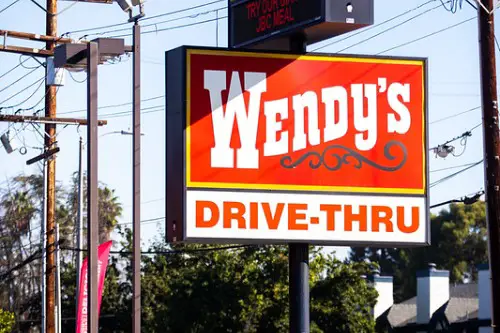
From online shopping to drive-thru everything, Americans often prioritize speed over experience. The need for instant gratification drives daily choices, but we rarely discuss it openly. There’s a mix of pride and guilt in constantly seeking efficiency. Outsiders might think it’s just a habit, but it’s a cultural identity.
This shows up in everything from grocery delivery services to express lanes at stores. Convenience is tied to our time-focused lifestyles, and admitting dependence can feel shameful. Many of us silently judge ourselves for skipping slow, traditional methods. Tourists might not realize how deeply ingrained this need is.
4. Portion sizes are huge

Restaurants in the U.S. are infamous for serving oversized meals, and locals rarely complain in front of visitors. There’s a mix of pride and embarrassment when faced with supersized options. We may joke about it internally, but most people just accept it. It’s culturally normalized to eat more than you need.
This extends beyond restaurants to packaged goods, snacks, and drinks. Many Americans have learned to “split it” or take leftovers home. Portion sizes influence health debates, yet we rarely explain this to outsiders. It’s an everyday reality hidden behind casual dining experiences.
5. Driving is a way of life

Cars dominate daily life, and many Americans can’t imagine commuting any other way. Public transportation exists in some cities, but it’s often inconvenient. We rarely talk to tourists about just how car-dependent our culture is. It’s assumed that everyone knows, but outsiders can be surprised.
Driving shapes everything from where we live to how we shop. Road trips are a cultural hallmark, yet they’re also a necessity for many. Traffic frustrations and long commutes are universal, but we rarely vent to strangers. The car is both a tool and a lifestyle statement.
6. Healthcare anxiety is constant

Even routine doctor visits carry unspoken tension for most Americans. Costs, insurance coverage, and confusing bills weigh on us silently. Tourists might notice emergency rooms or pharmacy lines, but not the daily anxiety over medical expenses. We keep this stress under wraps in casual conversation.
Many people delay care due to cost, which is a reality Americans just accept. The fear of surprise medical bills shapes decisions from lifestyle choices to jobs. Conversations about health often feel private or even taboo. This anxiety permeates life in subtle but significant ways.
7. We talk about money but not politics
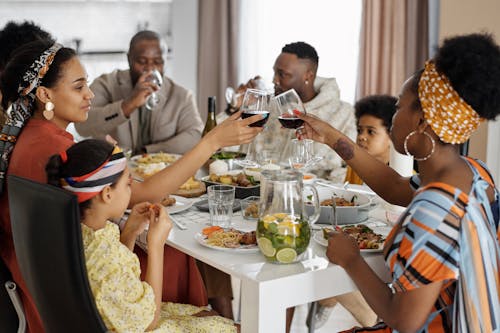
Americans often bond over personal finance tips rather than policy debates with strangers. Money is a frequent topic in casual settings, but political opinions are usually kept private around newcomers. Discussing finances is socially acceptable; discussing politics can quickly become divisive. Tourists might assume we’re always debating the government, but the truth is more nuanced.
Budgeting, debt, and investing are constant conversation topics behind closed doors. We share tips on savings apps, credit cards, and cost-of-living hacks. Politics is discussed, but selectively with trusted friends or family. It’s an everyday reality that surprises many outsiders.
8. We’re polite but impatient
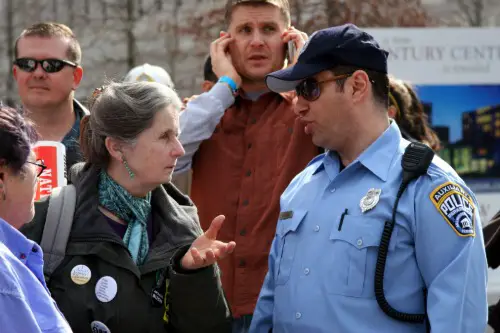
Americans often smile and say “thank you,” but patience is in short supply. Lines, delays, or slow service can spark frustration even if it’s not outwardly visible. Visitors might misread politeness as calmness, but internally, tensions run high. We rarely admit that a forced smile can mask stress.
This shows in everything from grocery checkout lines to customer service calls. Many of us practice quiet self-control while waiting. There’s a cultural expectation to stay friendly, even while feeling rushed. The balance between manners and impatience is a daily dance.
9. Sports are a cultural religion
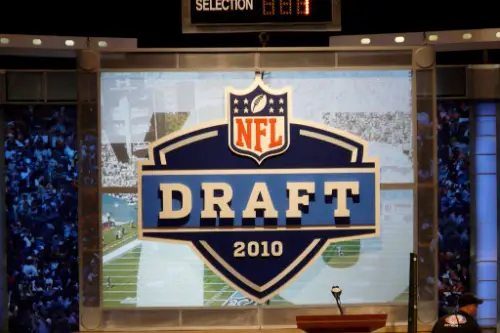
Major leagues like the NFL, NBA, and MLB are treated with devotion. Americans often talk about games as if they were national holidays. Even casual fans follow standings, stats, and news obsessively. Tourists might see packed stadiums but not understand the emotional intensity.
Sports talk dominates office breaks, social media, and weekend plans. It’s common to organize schedules around games or championships. Losing or winning can affect moods in ways outsiders might find surprising. The culture around sports is deeply ingrained and quietly pervasive.
10. Fast food is more than convenience
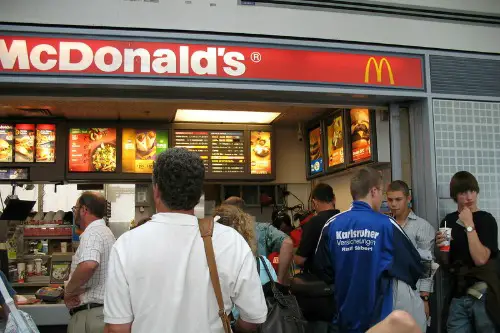
Yes, Americans eat fast food for convenience, but it’s also a comfort and cultural ritual. From drive-thrus to late-night runs, fast food shapes social life and routines. Tourists may assume it’s unhealthy laziness, but it’s often strategic, affordable, and familiar. We rarely discuss how normalized it is in daily life.
Brands like McDonald’s or Chick-fil-A are more than meals—they’re predictable, iconic experiences. Americans often bond over shared fast-food preferences. We joke about it, but there’s a quiet acknowledgment of its role in our culture. Fast food is simultaneously guilty pleasure and cultural glue.
11. We’re obsessed with weather apps
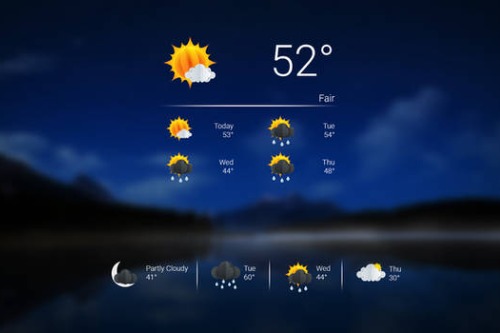
Americans check weather obsessively, even for minor fluctuations. The obsession goes beyond curiosity—it affects commutes, clothing choices, and weekend plans. Tourists may notice conversations about rain or snow, but not the underlying dependence on real-time data. It’s an everyday ritual rarely admitted aloud.
Weather drives conversations, texts, and even social media posts. Sudden changes spark collective reactions and memes. Many Americans own multiple apps to track forecasts. Despite seeming trivial, it’s a consistent part of daily life.
12. Work-life balance is a myth

Many Americans claim to value balance, but the reality often involves long hours and blurred boundaries. Emails, meetings, and side hustles follow people home. Tourists might see casual Fridays or flexible schedules but not the constant mental load. We rarely admit how tethered we are to work.
This cultural expectation impacts stress, family time, and mental health. Even vacations are scheduled around work availability. Americans frequently multitask, checking emails during downtime. The ideal of balance exists, but reality tells a different story.
13. Everyone secretly judges tipping
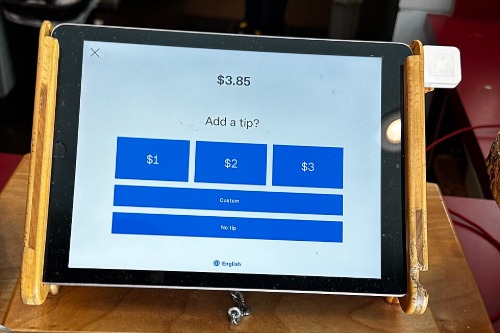
Beyond the stress of calculating amounts, Americans also silently judge others’ tipping habits. Whether it’s a friend, stranger, or family member, people notice and evaluate generosity. Tourists rarely see the subtle critiques exchanged behind the scenes. This judgment is a quiet cultural norm, almost instinctive.
Social pressure can influence tipping decisions more than actual service quality. People often exaggerate kindness or skim receipts to maintain appearances. Conversations about tipping can feel loaded with unspoken rules. The topic is simultaneously mundane and emotionally charged.
14. We underestimate public transit
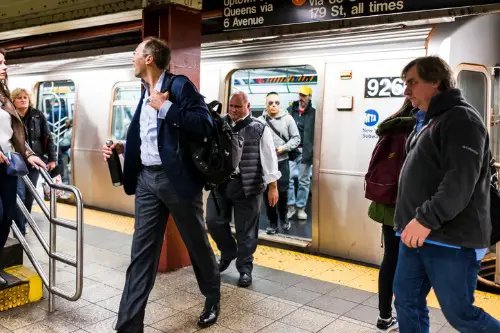
Even in cities with strong systems, Americans often prefer driving. Public transportation is seen as inconvenient, unsafe, or slow. Tourists may assume that urban Americans embrace subways or buses, but most locals rely on cars. This preference is rarely discussed openly—it’s just assumed.
There’s a quiet stigma around transit use outside major metropolitan areas. People talk about traffic, parking, and road trips more than subways or buses. Choosing public transit is sometimes a badge of practicality or necessity rather than preference. It’s one of those everyday truths quietly shaping lifestyles.
This post 14 Everyday Realities Americans Never Say Out Loud in Front of Tourists was first published on American Charm.


